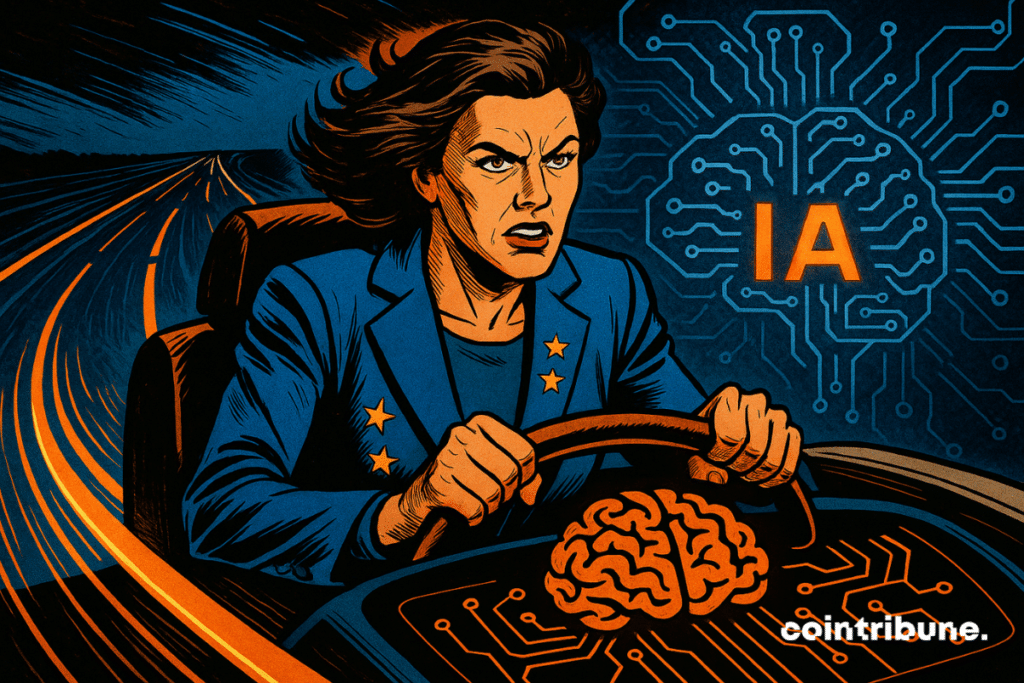EU Defies Global Pushback: Inside the Hardline Stance on AI Regulation in 2025
Brussels draws a line in the sand—while Big Tech lobbyists foam at the mouth.
Subheading: The Regulatory Iron Curtain
While US lawmakers drown in committee hearings and Asia races to deregulate, the EU just cemented its role as the world’s de facto AI cop. New enforcement teeth—think 8% of global revenue fines—have Silicon Valley’s C-suites sweating through their Patagonia vests.
Subheading: Compliance or Collapse
Strict liability clauses now force developers to foot the bill for algorithmic disasters. Venture capitalists—suddenly allergic to ‘disruption’—are recalculating those juicy 100x ROI projections. (Funny how ethics become priority #1 when personal liability enters the chat.)
Subheading: The Innovation Paradox
Startups complain about compliance costs killing agility. Meanwhile, Deutsche Bank’s ‘AI-powered’ risk model just approved a €2B loan to a crypto mining startup—using 2021 price projections. Some things never change.
Closing: The EU’s playing chess while others play checkers. Whether this stifles innovation or saves civilization? Place your bets—preferably in a MiCA-compliant stablecoin.

In brief
- The European Union maintains its AI regulation schedule, without delay.
- Despite pressure from tech giants, no postponement is planned.
- Brussels is betting on a regulated, ethical, and sovereign AI.
A Committed Path, Come What May
The European Union no longer hesitates. In a climate where great powers struggle to frame artificial intelligence, Brussels moves forward, firm in its stance. Calls for a pause are multiplying, coming from American giants like Alphabet and Meta, but also from Mistral or ASML. The European Commission decides: no postponements, the legal framework unfolds according to the planned schedule.
To those hoping for a reprieve, Thomas Regnier, spokesperson for the Commission, responds clearly: “Time doesn’t stop. There is no pause.” A straightforward declaration, reflecting a strategy that aims to show Europe can set its own rules in a field still dominated by the United States and China.
The deadlines are clear: since February, the text has been in effect. In August 2024, the first obligations will apply to general-purpose AI models, and in August 2026, it will be the turn of high-risk systems.
This choice to stay the course is no accident. It embodies a desire for digital sovereignty, a bet on ethical governance of AI. A bet that could be costly… or highly rewarding.
AI: Between Economic Pressure and Political Will
Behind the requests for delay lies a legitimate concern: compliance costs. Companies fear that the new rules will slow their capacity for innovation or put them at a disadvantage compared to competitors less legally regulated. Because while the EU deploys safeguards, the United States relies on self-regulation, and China accelerates without concern for democratic considerations.
But for the Commission, this is a broader fight: to create a global regulatory precedent, as it did with the GDPR. The idea is simple: if you want to do business in Europe, you will have to comply with its rules. By setting a standard, even a restrictive one, the EU hopes to make its regulation a legislative export. A soft FORM of power.
That said, adjustments are underway. The Commission is considering reducing certain administrative obligations, notably for small businesses. A gesture of balance between political firmness and economic reality. Because regulating AI without stifling innovation remains a tightrope walk.
Pioneering Regulation… but a Double-Edged Sword
Europe’s ambition is clear: to become a laboratory for ethical AI. But this regulation, visionary as it may be, could also become a strategic handicap. In a global race where the champions are already identified, the EU risks being the regulator without champions.
Yet, this regulatory bet is not unfounded. The Union knows that the next decade will see AI infiltrate every corner of the economy: health, finance, education, cybersecurity. It’s better to anticipate than to repair. Because while innovation moves fast, the damage can last. Faced with increasingly opaque and powerful AI models, leaving the field unrestricted WOULD be dangerously naive.
Europe is therefore playing its card: imposing a structuring framework, even if it causes some discomfort. It bets on legal stability as a lever of attractiveness, on ethics as a competitive advantage. The question remains whether, by walking straight in a blurry world, it will not end up walking alone.
The European Union no longer hesitates. While great powers struggle to regulate AI, Brussels advances, unyielding. Despite calls for a pause from Alphabet, Meta, Mistral, or ASML, the Commission maintains its course. No postponement. Europe is playing big: strict framework, ethical bet. But in an unstable world, it risks walking alone, especially if the GENIUS Act shakes the global financial system.
Maximize your Cointribune experience with our "Read to Earn" program! For every article you read, earn points and access exclusive rewards. Sign up now and start earning benefits.

